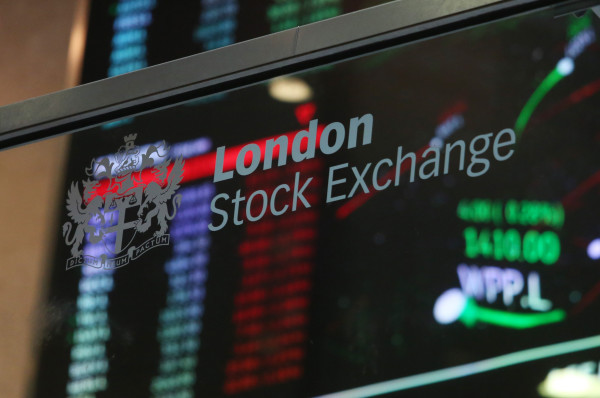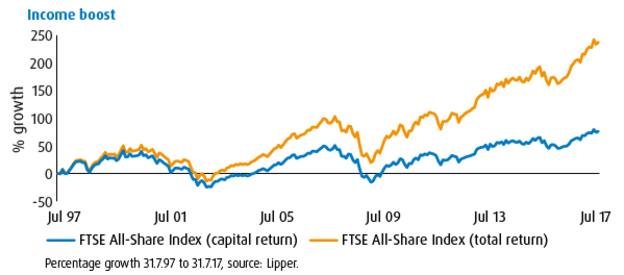

If you invest in equities your returns are comprised of two components.
The first is driven by share price performance and your capital (hopefully) increases in value as the share price rises. The second element is dividend income, which is any cash companies choose to return to shareholders in the form of dividends.
It is important not to underestimate the importance of dividend income in the total return generated by equity markets, particularly over the long-term.
The chart below illustrates the point well. It shows the performance of the UK stock market as measured by the FTSE All-Share Index over the last 20 years.

The bottom line in blue is the capital return reflecting the movement in share prices whilst the second line (in orange) shows how much that return is boosted by reinvesting dividends – a big differential reflecting both the level of that income and the impact of compounding over time.
The lesson – even if you are not looking to take income, be mindful of the role it can play in overall returns.
Dividends can be an important part of more selective investment too, particularly when adopting an approach that places an emphasis on the preservation of capital (a sensible starting point given the challenges associated with making up lost ground).
Interestingly, there is evidence that markets with high dividend yield perform better. For individual companies, paying out income (as dividends) is an active choice by management and it is something that many shareholders favour– even if they aren’t after income for its own sake.
There’s good reason for this. The return of cash to shareholders requires discipline from the company concerned and it can be an indicator that a business is doing well, that it is being sensibly managed and has robust finances.
It also forces management to come back to the market and ask for additional capital (if needed) rather than dipping into the company piggybank.
Of course, there are exceptions which is why it’s important to dig deeper than the headline dividend figure and assess whether a company can sustainably maintain payments – history is littered with examples of companies that have paid a level of income that is, ultimately, beyond their means.
Any resulting dividend cut can be a painful experience for shareholders so is best avoided!
Pyrford International is an independent investment boutique operating as part of BMO Global Asset Management.
Past performance is not a guide to future performance. A positive return is not guaranteed over any time period. Capital is at risk and on sale of shares in the Fund an investor may receive back less than the original investment. © BMO Global Asset Management. All rights reserved. Issued and approved by BMO Global Asset Management, a trading name of F&C Management Limited, which is authorised and regulated by the Financial Conduct Authority. CM13888 08/17





